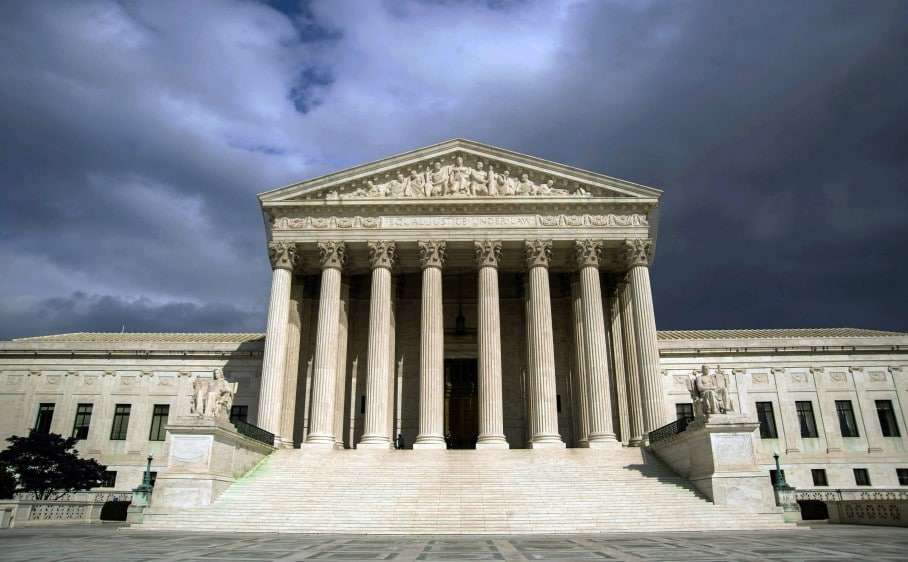The Volokh Conspiracy
Mostly law professors | Sometimes contrarian | Often libertarian | Always independent
A crazy idea to deescalate the judicial confirmation wars (and fill the Supreme Court vacancy)

Justice Antonin Scalia's death is a tragedy. For the sanity and functioning of the judicial confirmation process, it also could not have come at a worse time. As I've noted before, the judicial confirmation process has been in a downward spiral of increasing obstruction and dysfunction for thirty years. Over this period, each side has engaged in an escalating game of tit-for-tat. Senate Republicans have been particularly obstructionist of President Obama's judicial nominees, retaliating for Democratic obstruction of Republican nominees, and then some.
For years, I've suggested that the only way to put an end to this destructive cycle would be for there to be an agreement to adopt a set of neutral rules sufficiently prior to an election that neither side would be sure who stand to benefit. So, for instance, I've suggested prior to several of the previous presidential elections that Senate leaders commit to adopt an orderly process whereby every judicial nominee receives prompt consideration and an up-or-down vote on the Senate floor after the next intervening election. Could something like that work now? Probably not, but here's how the idea could work were anyone interested in setting aside partisan advantage and thinking about the long-term health of the federal judiciary.
First, President Obama would make a recess appointment of one of the three retired Supreme Court justices to fill the vacancy created by Justice Scalia's death. Second, the Senate leadership of both parties would commit to support the prompt confirmation of any qualified candidate put forward by the next President, and Presidents thereafter.
No one who cares about the make-up of the Court will be happy with this proposal. All three current retired justices (Stevens, Souter, and O'Connor) were GOP nominees, but they are all more "liberal" than Justice Scalia - two of them substantially so - even if they are not as liberal as some individuals President Obama might like to put on the Court. While this would enable the President to fill the vacancy, it would not do so permanently. Such an appointment would likely still deprive conservatives of the fifth vote in several high-profile cases, even if it would not solidify a new liberal majority on the Court.
On the Senate side, it is almost certain that Senate Republicans will continue to hold the majority at least through 2018, so they might not think there is too much to gain from committing to move forward on the next President's judicial nominees. Without a filibuster, any qualified nominee of a Republican president will sail through, and Senate Republicans might wish to maintain the ability to scuttle a future Democratic President's nominee without having to defeat the nominee in a straight up-or-down vote. Senate Republicans also seem quite eager to use their current power to block any Obama appointment to the Court.
The long run of continuing to escalate the current brinkmanship in judicial nominations are significant, however. Republicans should recall that Senate obstruction of judicial nominees has kept several highly qualified conservative nominees from the federal bench as well, and that refusing to allow Scalia's seat to be filled for a year would further politicize an already soiled process.
The underlying idea of this proposal is that the President should be able to nominate judges and the Senate should discharge its advice and consent function without undue delay. Under such a system, elections have consequences as, over time, the makeup of the judiciary will largely reflect the result of Presidential elections, albeit with a substantial lag. It would also make it easier to evaluate judicial nominees on the merits, and lower the political stakes of the confirmation process. As a general rule, Senators are less willing to oppose judicial nominees in the open than they are willing to obstruct and delay.
As a senator, Barack Obama did his share to push the judicial confirmation process further downward, opposing numerous judicial confirmations and supporting a sixty-vote threshold for Supreme Court nominations. As President, however, perhaps he has the opportunity to bring the judicial confirmation process back from the brink. This would require both the President and the Senate leadership placing the long term interest of the federal judiciary ahead of their partisan political interests. Of course, that is probably why something like this would never happen.


Show Comments (0)